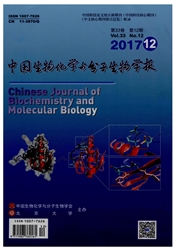

 中文摘要:
中文摘要:
过氧化物酶体增殖物激活受体γ(peroxisome proliferator-activated receptor gamma,PPARγ)是一种配体依赖性核转录因子,它具有调控细胞分化、脂肪代谢、糖代谢及炎症等多种生物学功能.机体对PPARγ转录活性的调控方式是多种多样的,包括蛋白表达水平、配体以及转录辅助因子等不同层次上的调控.近年来众多证据揭示,蛋白翻译后修饰(posttranslational modifications,PTMs)是机体调节PPARγ转录活性的另一重要方式.目前,已报道的PPARγ翻译后修饰包括磷酸化、泛素化、SUMO化和亚硝基化等,它们能够改变蛋白构象、调控蛋白相互作用、改变受体与配体间的亲和力,从而调控PPARγ下游基因的转录.重要的是,PPARγ的翻译后修饰与一些疾病如糖尿病、动脉粥样硬化、肿瘤等密切相关.本文将主要围绕PPARγ的各种翻译后修饰及其在疾病的发生、发展和治疗中的意义作一综述.
 英文摘要:
英文摘要:
Peroxisome proliferator-activated receptor γ(PPARγ) is a member of the nuclear receptor superfamily of ligand-dependent transcription factors.PPARγ regulates various biological processes such as cell differentiation,lipid metabolism,glucose metabolism and inflammation.It is acknowledged that the transcriptional activity of PPARγ may be fine-tuned by several mechanisms in vivo.For example,the expression level of PPARγ,the availability of its ligand and the association between PPARγ and corepressor/coactivator have been demonstrated to be able to regulate PPARγ activation.In addition,mounting evidence has defined posttranslational modifications(PTMs) as a novel essential factor tightly modulating PPARγ activation recently.Several PTMs of PPARγ including phosphorylation,ubiquitination,sumoylation and S-nitrosylation,might regulate its target genes by tuning protein conformation,protein-protein interactions and the affinity between the receptor and ligand.Importantly,there are some potential links between PTMs of PPARγ and the pathogenesis of several diseases such as diabetes,atherosclerosis and tumor.This review summarized the main characteristics of several PTMs of PPARγ,and highlighted the significance of PTMs in the occurrence,development and treatment of diseases.
 同期刊论文项目
同期刊论文项目
 同项目期刊论文
同项目期刊论文
 Cerebroside D, a glycoceramide compound, improves experimental colitis in mice via inducing apoptosi
Cerebroside D, a glycoceramide compound, improves experimental colitis in mice via inducing apoptosi Discovery of a New Class of Immunosuppressants from Trichothecium roseum Co-inspired by Cross-Kingdo
Discovery of a New Class of Immunosuppressants from Trichothecium roseum Co-inspired by Cross-Kingdo Endoplasmic Reticulum Stress Regulates Rat Mandibular Cartilage Thinning under Compressive Mechanica
Endoplasmic Reticulum Stress Regulates Rat Mandibular Cartilage Thinning under Compressive Mechanica Blocking initial infiltration of pioneer CD8(+) T-cells into the CNS via inhibition of SHP-2 amelior
Blocking initial infiltration of pioneer CD8(+) T-cells into the CNS via inhibition of SHP-2 amelior Oxidative Stress in Malignant Melanoma Enhances Tumor Necrosis Factor-alpha Secretion of Tumor-Assoc
Oxidative Stress in Malignant Melanoma Enhances Tumor Necrosis Factor-alpha Secretion of Tumor-Assoc A Critical Role of Fas-Associated Protein with Death Domain Phosphorylation in Intracellular Reactiv
A Critical Role of Fas-Associated Protein with Death Domain Phosphorylation in Intracellular Reactiv Single-Molecule Experiments Reveal the Flexibility of a Per-ARNT-Sim Domain and the Kinetic Partitio
Single-Molecule Experiments Reveal the Flexibility of a Per-ARNT-Sim Domain and the Kinetic Partitio Inhibition of Th1/Th17 responses via suppression of STAT1 and STAT3 activation contributes to the am
Inhibition of Th1/Th17 responses via suppression of STAT1 and STAT3 activation contributes to the am Selective fluorescent probe based on Schiff base derived from hydroxymethyl coumarin and aminated Su
Selective fluorescent probe based on Schiff base derived from hydroxymethyl coumarin and aminated Su 期刊信息
期刊信息
